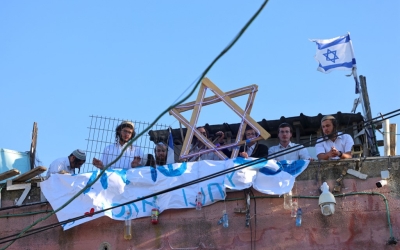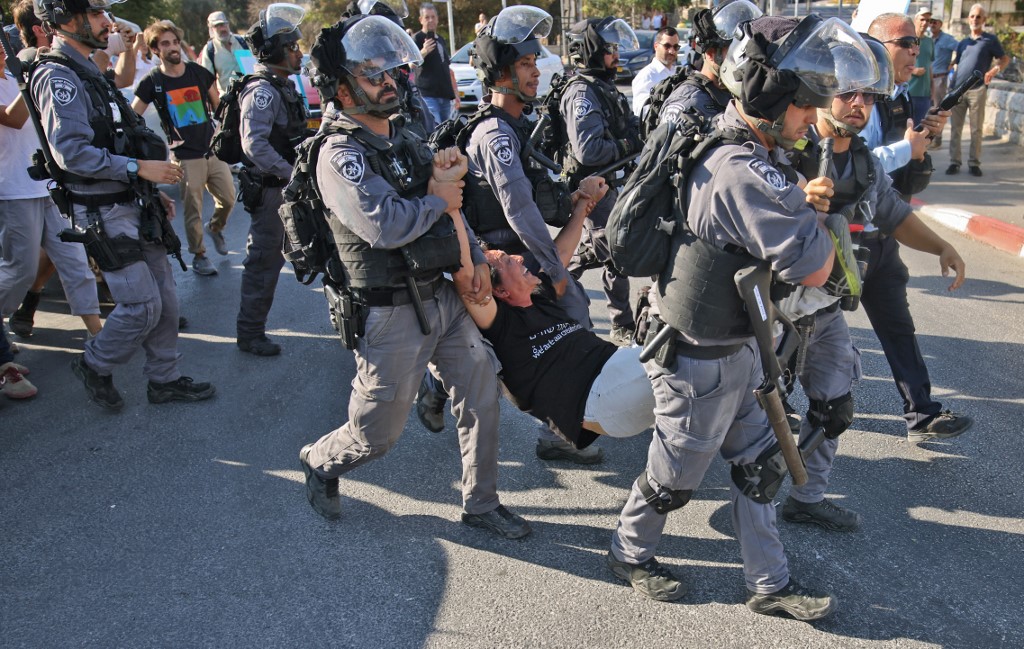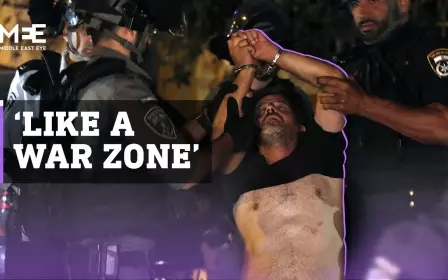Israel's outrage over Poland's law on Jewish stolen property is a farce

New legislation, approved a few days ago by Polish President Andrzej Duda, stipulating that Jews can no longer receive compensation for property taken from them during the Holocaust and under Communist rule in Poland, evoked extraordinary outrage from Israel.
Israel’s response to the Polish legislation borders on grotesque, given that Israel has a very similar, albeit much more draconian, law of its own
Israeli Foreign Minister Yair Lapid, terming the law "antisemitic and immoral", announced that he had instructed Israel’s charge d’affaires in Warsaw, Tal Ben-Ari, to return to Israel for consultation of indefinite duration; the departure to Poland of Israel’s newly named ambassador, Yacov Livne, was put on hold.
The Israeli foreign ministry also announced that it would recommend to the Polish ambassador to Israel that he “extend his vacation in his own country and not return” to Israel. Israel’s severe response to the Polish legislation borders on grotesque, given that Israel has a very similar, albeit much more draconian, law of its own, called the Absentee Property Law.
This law, among its other provisions, gives Israel ownership of the property of Palestinian refugees who lost it during the 1948 war. The law not only prevents the return of Palestinian property to ’48 refugees, but is being actively used today to continue expropriating Palestinian property in East Jerusalem.
The Absentees
New MEE newsletter: Jerusalem Dispatch
Sign up to get the latest insights and analysis on Israel-Palestine, alongside Turkey Unpacked and other MEE newsletters
This law was passed in 1950 to enable the government to seize the property of Palestinian refugees by deeming them "absentees".
Absentees were defined as Palestinian residents or subjects of Arab states who, from 29 November 1948 until termination of the state of emergency declared in 1948 - which has yet to occur - were residing in one of the Arab countries or “in any part of the Land of Israel outside the territory of Israel”.
Under the law, all their land and other assets were to be transferred to the custodian of absentee property and effectively become the property of the state of Israel.
Moreover, the Palestinians who became refugees outside Israel's borders in that era were not the only ones to lose their property and land in this way. After the conquest and annexation of East Jerusalem in 1967, Israel applied its laws to the newly occupied territory, including the Absentee Property Law.
Thus, the property of almost all the Palestinian residents of the city became the property of absentees - since, during the period to which the law refers, these Palestinians were citizens of Jordan, then an enemy state, and present in "a part of Israel outside Israeli territory", as defined by law.
Israel’s thirst for land
This situation was perceived as overly far-reaching even for Israel’s appetite for Palestinian land.
Palestinian families in East Jerusalem neighbourhoods such as Sheikh Jarrah and Silwan have been evicted from their homes in a process of creeping ethnic cleansing
A subsequent amendment limited the application of the law so that residents present physically in East Jerusalem at the date of its annexation would not be deemed absentees.
Still, this clause did not resolve the problem of Palestinians who lived outside the municipal boundaries of Jerusalem but owned land or other assets within the city limits; they remained absentees and their property was transferred to state ownership.
Israel’s thirst for land compensated itself elsewhere: in a 1970 law, Israel held that property under the authority of the Jordanian custodian of absentee property prior to the annexation of East Jerusalem would revert to the original owners via the Israeli custodian general.
This involves property under Jewish ownership pre-1948 in an area that after the war remained in Jordanian territory and was administered by the Jordanian custodian for absentee property; after the conquest and annexation of East Jerusalem by Israel, that property became, from Israel’s perspective, part of its sovereign territory.
In other words, the Israeli law enabled the unilateral return of such property to Jewish owners only. On this basis, over a period of years, Palestinian families in East Jerusalem neighbourhoods such as Sheikh Jarrah and Silwan have been evicted from their homes in a process of creeping ethnic cleansing, and their homes have been transferred one by one to the most extremist settler organisations.
As if all that were not more than enough, alongside the expropriations from refugees in the diaspora and the displaced residents of East Jerusalem, another category of theft was created: that of “present absentees”. This refers to Palestinian residents of Israel who were technically defined as absent from their land at the crucial time, while they were elsewhere.
Their land and their homes were expropriated under the Absentee Property Law even though the owners had never left the territory of Israel
Their land and their homes were expropriated under the Absentee Property Law even though the owners had never left the territory of Israel. Some of them never even left their homes, but lived in villages not under Israeli control at that time but that were annexed to Israel later on, such as parts of the Triangle (in central Israel) and of the Galilee. These Palestinians were declared absentees for having resided in “enemy territory” on the decisive date.
Anyone impressed now by Israel’s concern for the property of Jewish refugees ought to remember the official position paper submitted by Israel’s National Security Council to the prime minister in 2012 (Hebrew here; English, here).
The paper recommends linking the issue of Palestinian refugee property and that of Jews who immigrated to Israel from Arab countries and Iran - in order to “constrain” any future negotiation on Palestinian demands regarding refugee property. In other words, Jewish property left behind is not so sacred to Israel if it can be useful for political purposes, such as thwarting the claims of Palestinian refugees.
Israel's hypocrisy
Recently, in reference to the diplomatic crisis with Israel, the Polish Prime Minister Mateusz Morawiecki said the law was intended to protect current Polish tenants living in apartments that were otherwise owned before World War II.
It takes an incredible amount of audacity and hypocrisy on the part of Israel to criticise the Polish law while Sheikh Jarrah and Silwan residents are thrown out of their homes or fought in courts for years
"Tens of thousands of people were thrown out of the houses where they lived all their lives - just because our law had a provision that allowed unlimited land to be returned," Morawiecki said.
"Worse, the 'return' was often made not to the real owners or their heirs, but to the criminals. In many cases documents were falsified or there was corruption, for which deceivers of political power and ordinary criminals became rich at the expense of the victims of World War II."
Morawiecki's remarks refer to the situation in Poland, but it sounds as if he describes the situation in Sheikh Jarrah and Silwan - Palestinian residents are thrown out of their houses where they have lived for decades under the pretext of previous ownership claims, and more often than not the original owners do not get the property back, but the settlers do.
This does not justify the Polish law, which like any other legislation that tramples on the rights of war refugees is immoral and flawed. But it takes an incredible amount of audacity and hypocrisy on the part of Israel to criticise that law while Sheikh Jarrah and Silwan residents are thrown out of their homes or fought in courts for years, and while Palestinian refugees outside Palestine do not even have the ability to reach court to claim their property.
A more effective path
One final word about the farce of Israel’s response to the Polish legislation: with the law’s approval by the parliament in Warsaw, Lapid said that “Israel will not compromise one iota on the memory of the Holocaust”. Not compromising on the memory of the Holocaust is certainly a worthy goal.
Perhaps, however, a more effective path for the government would be, for example, to stop cosying up to leaders such as Viktor Orban, who ran an antisemitic campaign against Jewish financier George Soros, or for the Yad Vashem Holocaust Memorial Centre to refrain from using its site to host antisemites such as Brazilian President Jair Bolsonaro, Philippines President Rodrigo Duterte who, among other things, supported blowing up schools serving indigenous populations, the former speaker of South Sudan's transitional legislative assembly, Anthony Lino Makana, responsible for war crimes and crimes against humanity during the Sudanese civil war, and other such persons.
From a moral, ethical and humanitarian standpoint, that would be an incomparably more meaningful step than the struggle over Jewish refugee property, however important that may be.
The views expressed in this article belong to the author and do not necessarily reflect the editorial policy of Middle East Eye.
This article is available in French on Middle East Eye French edition.
Middle East Eye delivers independent and unrivalled coverage and analysis of the Middle East, North Africa and beyond. To learn more about republishing this content and the associated fees, please fill out this form. More about MEE can be found here.







